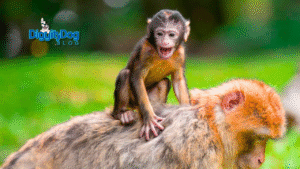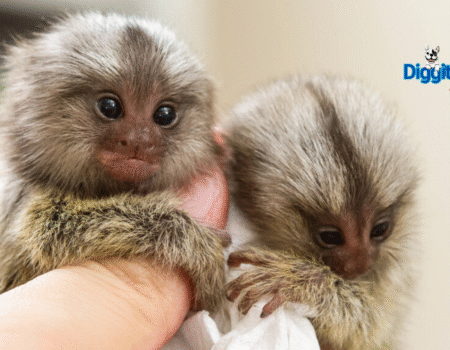Ethical Monkey Care 2025: What New Owners Need to Know
Hey everyone, it’s Joshua Van here, the guy behind this blog where I’ve spent years chatting about all sorts of animal stuff. If you’re poking around for info on monkeys as pets, you’ve landed on Ethical Monkey Care 2025: What New Owners Need to Know. Yeah, that’s the title, and honestly, it’s a topic that’s got me thinking a lot lately after hearing from folks who’ve tried it and wished they hadn’t.
Monkeys seem like a fun idea those cheeky faces and clever antics but man, they’re not your typical buddy like a dog or cat. With all the talk in 2025 about animal rights heating up, it’s more important than ever to get the lowdown on pet care that actually keeps them healthy and happy, or better yet, questions if owning one is even right.
Key Takeaways
- Owning a monkey raises big ethical questions; a bunch of pros say they’re meant for the wild or proper sanctuaries because of how social and smart they are.
- Laws are shifting: That Captive Primate Safety Act got reintroduced this year, and it might put the kibosh on private ownership across the board soon.
- For healthy pet vibes, monkeys need huge spaces, spot-on diets, and vets who know their stuff we’re talking setups bigger than most folks’ yards and food that copies what they’d munch in nature.
- Watch out for health pitfalls: Diseases that jump to humans, plus behavior problems, and the costs can stack up quick.
- If you’re dead set on it, go for rescues instead of buying, but seriously, think about other options that give the same thrill without the hassle.
Getting the Ethics Straight on Monkey Ownership
I’ve swapped stories with vets and rescue workers over coffee, and let me tell you, those cute clips of monkeys in diapers? They don’t show the full picture. These critters are built for big family groups in the jungle, swinging around and chatting all day. Stick one in a house alone, and it’s like asking a kid to grow up without friends leads to all kinds of sadness and acting out. Groups like the RSPCA are loud about it: “Primates are not suitable house pets.”

From what I’ve picked up, the trade behind pet monkeys is rough moms separated from babies, smuggling, you name it. Ends up with animals that bite or get depressed. If you’re all about healthy pet ethics, you’ve got to wonder: Am I really set up to give this monkey a good life? Most times, it’s a hard no.
What’s Making 2025 a Big Deal for Primate Ethics
This year’s got everyone buzzing with the Captive Primate Safety Act back in play, aiming to stop folks from keeping or breeding primates at home. Zoos and welfare folks are pushing it hard, especially after stories of monkeys getting loose or dumped. In spots like Missouri where it’s still common, experts are saying it’s trouble waiting to happen. It’s not just about following rules; it’s making sure these bright animals aren’t stuck suffering because we think they’re cute.
Sorting Out the Legal Side: Monkey Laws in 2025
Hold up before you start browsing for sellers laws are a maze. No full federal ban yet in the US, but stuff like the Endangered Species Act keeps endangered ones like spider monkeys off the table. States are all over the place: Indiana might okay a baboon with paperwork, but California? Total no-go.
Big update for 2025: The Act’s in Congress, and if it goes through, private ownership could be history, with a grace period to register what you’ve got. CDC already blocks importing them as pets no bringing in overseas cuties. Dig into your local rules, or you could face big fines and losing your pal.
Quick Look at States
- Easy-Going Spots: Mississippi lets most slide with few checks, though folks are starting to question it.
- Tough Ones: New York, Hawaii straight-up bans to keep everyone safe.
- Permit Zones: Texas wants special exotic permits and proof you’ve got the right setup.
Hit up your wildlife office; things change quicker than you think.
Setting Up Home and Keeping Them Busy: Monkey Housing Done Right
Monkeys aren’t chill on the sofa they crave climbing, exploring, the works. Tiny space? No way. Vets say go for at least 20 by 20 feet for little guys like marmosets, with lots of height for branches. Outside time’s great, linked to inside for bad weather.
Keeping their brains ticking is huge for healthy pet life puzzles, swings, even stuff to hide in. One rescue I know swears by natural vibes with plants and maybe a buddy or two. Alone, they might rock back and forth or hurt themselves, so company matters.
Simple Ideas for Fun Stuff
- String up old tires or blankets for swinging around.
- Hide treats in grass or boxes to make them hunt like in the wild.
- Switch up toys every few days tough ones that won’t break easy.
Feeding Them Well: Monkey Diets in 2025
Bananas alone? That’s a myth. Pros now push for mixes: half fruits and greens, quarter proteins like bugs or eggs, and some nuts. Cut the sweets; bad bones from junk food are common.
Capuchins love fresh apples, leaves, and crickets. Add calcium and D vitamins, especially if they’re inside a lot. A vet pal told me about diets with seeds and a bit of cooked meat no raw to avoid bugs.
A Day’s Worth of Eats
- Breakfast: Sliced fruits like pear and veggies such as broccoli.
- Midday: Some insects or a hard-boiled egg for protein.
- Dinner: Handful of seeds and nuts to nibble.
Keeping Them Healthy: Vet Stuff and More
Scoring a monkey-savvy vet? It’s a hunt. In 2025, exotic specialists handle yearly exams, shots, and worm checks. They can pass on things like herpes B or TB to us humans. These guys live 20 to 40 years, so budget for ongoing pet care we’re talking serious cash.
Usual troubles: Tooth issues from wrong food, or freak-outs from stress. Rescues mention house monkeys need special tests unlike wild ones.
Rookie Errors and Dodging Them
New folks get starry-eyed, but then bam bites happen as they grow up and get bossy. Or they skip making friends, leading to escapes or fights. And the mess? They’re not potty-trained like pups.
Tip: Start training with treats early, but remember, it’s forever.
Better Ideas Than Owning a Monkey
If this feels like too much (and it probably is), try rats they’re clever and cuddly or ferrets for the energy. Birds like parrots bring the smarts without the monkey madness. Or volunteer at a sanctuary; get the fun without the full-time gig.
FAQs
Can I legally have a monkey where I live?
Varies big time peek at your state’s wildlife rules. In 2025, permits are common, and federal stuff might change it all.
What’s the yearly cost for monkey pet care?
Figure $5K to $10K for eats, docs, and space don’t forget the diapers!
Do monkeys learn to use the bathroom inside?
Nah, they mark stuff everywhere.
Which monkey’s easiest for starters?
Trick question none are easy, but marmosets are tinier, still a handful.
Any good breeders out there?
Better to rescue and skip feeding the trade.
References
I always pull from reliable spots. Dive deeper here:
- Congress.gov on Captive Primate Safety Act
- NPR piece on the Act and pet trade
- RSPCA advice on keeping primates
- Plus bits from vets and state law overviews.










No Comment! Be the first one.